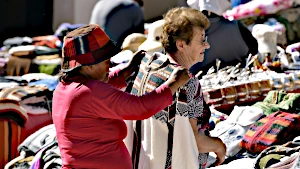Opinion Editorial Not Available

We're sorry but no monthly opinion editorial is currently available at this page. Opinion editorials are posted on the first day of each calendar month.
The monthly opinion editorials that are currently available can be read by clicking on any photo on the left of this page.
If you enjoyed reading this month's opinion editorial, please consider supporting independent, advertising-free journalism by buying us a coffee to help us cover the cost of hosting our web site. Please click on the link or scan the QR code. Thanks!




